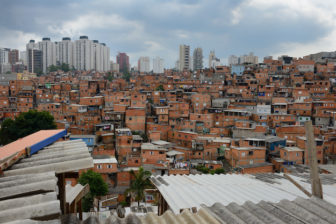“You never want a serious crisis to go to waste.” Long before Rahm Emmanuel, Barack Obama’s one time chief of staff, used this expression to refer to the global financial crisis of 2008-2009, Winston Churchill had already made it famous in the wake of the Second World War.
In that spirit, and with Latin America now the epicenter of the coronavirus pandemic, we can try to look ahead at what positives might ultimately come out of the human and economic tragedy the region is currently facing. The following is a collective list of 10 ways our societies might improve after the pandemic, based on a virtual dialogue with followers on social media who contributed ideas and suggestions.
First, five permanent positive consequences:
- Financial Inclusion. The expansion of cash transfer programs such as Ingreso Solidario in Colombia and others in the region has underscored the need to broaden access to the financial system as never before. “The most notable impact (of the pandemic) has been an increase in the use of bank accounts by the poor,” said Felipe Lega, the director of the Colombian finance ministry’s Financial Regulatory Unit (URF). In Colombia, using digital tools, more than a million accounts have been opened since the start of the outbreak in order for people to receive the cash transfer. Some of these accounts are provided by non-bank intermediaries offering digital payments. But the crisis has also pushed banks to compete with free services to customers at the base of socioeconomic pyramid. In other words, financial inclusion, with the help of fintech, has increased dramatically amid the pandemic.
- Greater investment in hospitals. Colombia had 5,400 Intensive Care Units (ICUs) last January. Today it has 7,279, a figure that is likely to continue to increase. The number of ventilators has also increased substantially. A similar trend can be seen in other countries in the region. After the pandemic is over, there will be more hospital beds in a region that was below global standards in this area.
- Greater use of information and communication technology (ICT) and digitalization. Companies and individuals have quickly adapted virtual tools to carry out activities that were previously face-to-face. This means greater access to information and knowledge, as well as productivity gains. However, it has also exposed the gap in access to ICTs. In Colombia, about 50% of public school students either do not have a broadband connection at home or, if they do, do not have a computer or tablet to connect. The figures are not very different in other Latin American countries. Investments in ICTs are urgently needed, as they will help revive the economy and may even contribute to the environment, by reducing transportation needs. That is why digital connectivity was highlighted among flagship COVID-19 recovery programs in a study led by Nicholas Stern and Joseph Stiglitz published by the University of Oxford.
- More awareness about the effects of crises foretold, or white swans, such as climate change. The pandemic was foreseeable and its devastating effects are increasing our alertness to other trends that could have similar or even worse outcomes. Increased concern for our health, and that of the planet, may lead to decisions that actually combat climate change.
- Aversion to unnecessary travel and meetings. The pandemic has highlighted the time we waste traveling, not to mention the economic costs associated with it. Video conferencing technology is now a much more acceptable and friendly substitute. We will have more efficient and cost-effective meetings with colleagues, clients and suppliers. (And we also lowered our tolerance of endless meetings with no clear purpose.)
I should add that this crisis has also been a sort of vindication of the public sector. In the past, scandals associated with corruption or government inefficiencies have generated lack of trust and a negative perception of the public sector. But amid this crisis, the state apparatus has been seen as a source of solutions to the consequences of such a large shock. The public sector has responded rapidly on a number of fronts, from public health to preservation of incomes for households, and offered a lifeline of support to businesses.
This will be a positive legacy (if it remains), because the public sector is indispensable when it comes to externalities and other market failures, and typically has a longer horizon to plan than do private agents. In the context of solutions to problems as diverse as climate change and inequality, the state is needed. Will it last?
Which brings me to the last five, non-permanent gains the pandemic brought us:
- A reduction of CO2 and other polluting emissions;
- A reduction in crime (including the homicide rate) and road accidents;
- Less use of paper. Adobe Acrobat reported that use of PDF documents increased by 50% during the pandemic;
- Increased punctuality. No more excuses to arrive late to a meeting, blaming the horrible traffic that plagues most Latin American cities;
- Finally, the greatest gain: Enhanced family life, though as some who participated in the dialogue on Twitter pointed out, this is a double-edged sword. Intra-family violence has also increased.
It is still too early to determine the pandemic’s lasting effects, but the bottom line is that crises allow us to make decisions and implement policies that are difficult in normal times. The biggest mistake would be to not take advantage of this situation to resolve issues that will impact our future, such as a sharp deterioration of the fiscal scenario, the region’s lack of competitiveness and, above all, the overwhelming levels of informality.
While we are at it, we can add a touch of optimism to these complex and difficult times.
—
Cárdenas is a distinguished visiting fellow at the Center on Global Energy Policy at Columbia University and was Colombia’s Finance Minister (2012-2018). Follow him on twitter @MauricioCard








